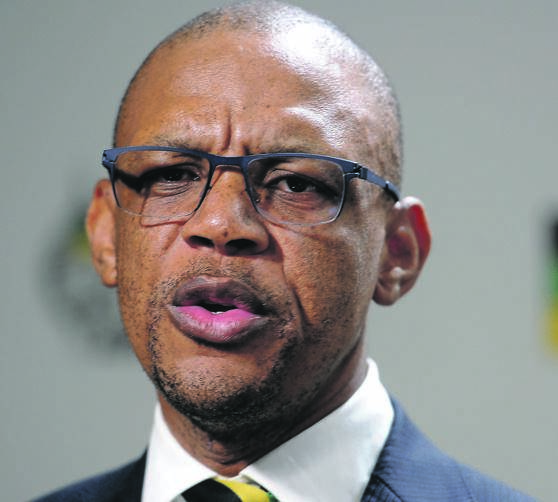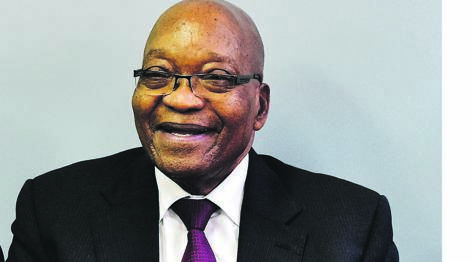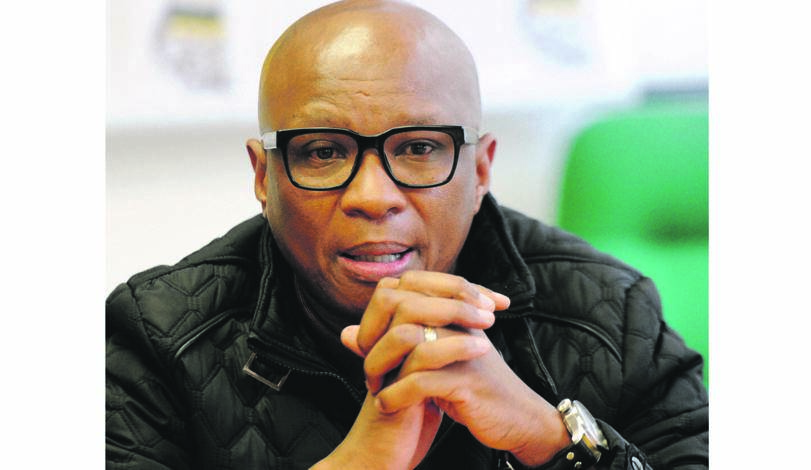
If there is a way to undo this culture, which is deeply imbedded in our society, sexual assault and violence must be at the centre of political discourse
Crowds gathered outside the court.
Their voices – rising in prayer to the Lord – met somewhere above their heads with the rising smoke of burning impempho by those pleading to their ancestors to intercede on behalf of their man in his hour of need.
Skywards was smoke from another source, those who burnt effigies of the “witch”, the woman who had accused Jacob Zuma of rape.
Calls of prayer to God, voices pleading to the ancestors and angry voices rebuking Zuma’s accuser were lifted by powerful songs conjuring Zuma’s virility Awuleth’ Umshini Wami; and gyrating vigorously in a dance that simulated the sexual act and celebrated Zuma, the warrior
Close by, a small group of women in purple T-shirts and wrappers around their waists, stood with placards pledging solidarity with the woman known as Khwezi.
Despite threats of violence and insults from the men and women in the big crowds supporting Zuma, the women in purple T-shirts stood stoically and endured the insults and threats, day in and day out.
Where Zuma was accompanied by armed guards who jumped out of moving cars, demonstrating their skill and power, the woman who accused him of rape covered her face with huge sunglasses and a scarf and, doubled over, walked into the court through the side entrance, trying in vain to avoid the crowds burning her effigies and calling her an “agent sent to destroy” Zuma who, with his supporters, believed he was by right meant to lead the ANC and South Africa.
Above all this was the noise that came from newscasters, analysts and journalists in radio and television. Sizakuyibeth’inja kuphum’umniniyo, we will beat the dog until its handler comes out.
Zizi Kodwa repeated this phrase over and over throughout that rape trial.
His was a voice that threatened the complainant, her supporters and just about anybody who dared to question Zuma’s suitability to hold office.
To this day it remains a voice and a tag line that I associate with the scenes outside the court.
Thirteen years after Fezekile Kuzwayo (Khwezi) accused Zuma of rape, that rape trial remains an important point of reference, especially with regard to powerful politicians accused of rape and sexual harassment.
It is also a point of reference on how the ANC deals with allegations of this nature in its ranks.
Since that rape trial we have seen three influential ANC men who have been accused of rape and sexual harassment, Marius Fransman and Pule Mabe have been accused of sexual harassment and Kodwa has been accused of rape.
Their responses are illuminating for those who are trying to understand ANC politicians and their allies and the “rape culture” within the party.
In war talk reminiscent of his speeches during the Zuma rape trial, when he threatened to “beat the dog until its handler comes out”, Kodwa responded to allegations of rape : “I deny these accusations with the contempt they deserve. I refuse to succumb to extortion and blackmail. Most importantly, I refuse to bow down to dirty tricks by cowards operating from their factional dark corners, using women to fight or neutralise me. I wish to expose and condemn this feeble yet dangerous attempt as political blackmail and manipulation, orchestrated by elements wishing to turn our politics into a jungle, a place for apartheid-like dirty tricks to silence others.”
The rape complaint against Kodwa comes after the sexual harassment complaint against the ANC spokesperson, Mabe.
In response to the complaint against him, Mabe said: “I will not allow my name to be used to pursue nefarious agendas whose sole motive is character assassination …”
Shortly after Kodwa issued the statement, I was called by a producer of a television programme, who invited me to a discussion.
Producer: “We would like to discuss how women are used for political battles.”
Me: “What do you mean?” I asked, testily.
Producer: “Zizi Kodwa says the rape allegations against him are part of a dirty campaign. We want to look into that …” he offered by way of explanation.
The focus of the producer is indicative of mainstream preoccupations about sexual assault – including rape – and sexual harassment, which tend to focus on the behaviour and intention of the one who reports such incidents.
Explanation is often sought outside the behaviour of the man who faces such allegations, especially in instances that involve powerful men.
Kodwa, as with those who faced such allegations before him – Mabe, Fransman and Zuma – shifted focus from the actual allegations to the intention and character of their accusers and “political plots”.
Read: ANC closes sexual harassment case against Pule Mabe
The responses and behaviours of these four ANC men put sexual assault – including rape – and sexual harassment at the door of the ANC and factional tension within the organisation.
Already, cleavages have emerged in Mabe’s case, with reports that the ANC did not find him guilty of sexual harassment and found his accuser’s reporting unfair and opaque.
Others report that different sides are lining up in support of Kodwa on the one hand and Mabe on the other.
This happens at a time when Fransman’s accuser is still waiting to hear about her complaint.
Here we are dealing not only with the “coincidence” of three men who happen to be influential in the ANC who are facing allegations of sexual violence and harassment.
At the centre of the allegations is the rape culture within the ANC. Rape culture, first coined by feminists in the 1970, refers to a society in which rape is normalised as an extreme display of pervasive misogyny and sexism.
ANC leaders and top members of the ANC Women’s League came out in defence of Zuma even before the case went to trial, as well as after the trial.
In its handling of Zuma during the rape case the ANC allowed him to lead the party and South Africa, despite deeply troubling and misogynistic statements he made in court.
There was not a single statement by the ANC and any of its organs which suggested they would hold Zuma to account for the damaging statements he made in court.
Instead, his supporters pushed hard for his rise and, through our electoral system, he was imposed on the nation.
This time, if there is any possibility of undoing this culture, which is deeply imbedded in our society, sexual assault and sexual violence must be at the centre of political discourse.
The script must be flipped. The men who stand accused and the organisations which seemingly permit rape culture must be outed.
At a time when the ANC stands accused of many crimes, corruption and betrayal of the nation, as we see in the state capture commission and other commissions, we must look closely at how the organisation understands power, how it uses it and ask what does this abuse of power signify in our society?
Not every man who has raped or abused is necessarily close to political power but it also true that political power and social influence can in fact overlap with the expression of power through other means, including sexual assault and sexual violence.
“Rape is not a crime of irrational, impulsive, uncontrollable lust, but is a deliberate, hostile, violent act of degradation and possession on the part of would-be conquerors,” wrote Susan Brownmiller in Against Our Will, 1975.
As we examine these cases, we must be mindful of where power lies, how it is used and abused and the victims it leaves in its wake.
Kodwa and Mabe are said to have voluntarily stepped down from their duties until the cases against them have been resolved. The ANC has “commended them for showing leadership”.
This is in stark contrast to how Fransman and others fought to hold their positions.
ANC leaders do not normally step down when they face allegations of criminality, despite the ANC’s resolution in Mangaung to the effect that people who face criminal charges should step down.
So, there is some improvement. However, it is disturbing to note that the committee which initially looked into the Mabe case recommended that the organisation should have a policy on sexual harassment and a disciplinary code for such cases.
In 1992 I worked for the ANC as executive secretary of the Commission for the Emancipation of Women.
One of the first assignments I undertook in that position was to develop a sexual harassment policy and code of discipline.
By the time the office closed in 1996, we had submitted a draft policy to the secretariat.
That policy was a product of extensive consultations with head office and in the provinces.
The fact that it was not adopted, as the report of the committee on Mabe seems to suggest, is an indication of the ANC’s lack of commitment to create an environment that seeks to end rape culture.
While our focus is the ANC’s culture and specific cases as discussed, it is important to emphasise that rape culture is found in many political parties and in our society.
We are seeing this playing out between supporters of political parties and journalists on social media and other platforms.
On Twitter Redi Tlhabi was threatened with rape and other forms of assault by supporters of Malusi Gigaba.
In recent times Pauli van Wyk, Ranjeni Munusamy and Karima Brown have been threatened by people who claim to be EFF supporters. The EFF leadership has not issued a clear statement distancing itself from such statements.
Threats of rape are violent, vile and brutal. The fact that South Africans have to witness this violence on social media, on public platforms and in private is an indication of how deeply embedded violence against women is.
It is here, where patriarchal power must relinquish its most potent weapon, sexual violence and assault, that we should judge politicians and political parties.
It is not enough to pronounce that they “respect women” or espouse values which would make it impossible for them to abuse women.
We need concrete actions against sexual assault and sexual harassment from people who want to lead this country and the political parties they lead.
Nomboniso Gasa is adjunct professor at the University of Cape Town’s School of Public Law, a researcher and analyst on land, gender, politics and cultural issues
TALK TO US
Sexual assault is a crime of violence, often committed by those in power. How do we put a stop to it?
SMS us on 35697 using the keyword RAPE and tell us what you think. Please include your name and province. SMSes cost R1.50. By participating, you agree to receive occasional marketing material




 Publications
Publications
 Partners
Partners










